If you’ve ever seen the show Mythbusters, you know the premise: a widely-held belief is transparently and scientifically challenged by experimental scientists (fundamentally, Adam and Jamie) who, I suspect, really like blowing things up. (If you’ve watched the show, you’ll get this; if not, just know that there’s a lot of blowing stuff up.) In the end, you are able to walk away from the show—and that show’s tested belief—with a wider understanding of its truth, and how to derive that truth scientifically.
It’s a fascinating show, and for those who value truth or knowledge, is a real feast for both.
In the real world, I wish we had an Adam Savage and Jamie Hyneman for everything, but unfortunately, they are busy testing things and blowing them up. (And now they’ve moved on to bigger and better things).
In my work with veterans and military spouses now, and with the companies that hire them, there are many times I hear a purported myth and want to pull my hair out. They often sound like this:
“I would hire more veterans, but don’t they all have PTSD?”
“I need someone who can be proactive, not just take orders.”
and from the veteran side:
“It’s like there’s nobody out there who gets me. Civilians don’t care.”
“I need to make at least what I did in the military or that job isn’t worth it.”
Now, keep in mind that not all veterans (or companies) hold these beliefs, but they are pretty common in the general dialogue surrounding veteran transition and veteran hiring. The problem is that while these feelings may be based on emotion or feeling, there’s not must substance outside of that.
They are myths.
So, here, we’ve got an oldie but a goodie: In 2014, the Joint Chiefs of Staff released a White Paper on Veteran Stereotypes. It comes from both sides of the equation and addresses some of the most common misconceptions, and while it does have a few years under its belt, its still one of the most solid pieces of data on the subject, with a lot of science backing it up.
I’d encourage you to read it—no matter which side of the discussion you’re coming from and regardless of what you think about any of the matters at hand—for one simple reason: it is only by understanding what’s out there swirling as fact that we can address issues that would otherwise divide us. In short, it’s a great piece of education. In the long game, it could be a foundational element in how the veteran community and the corporate communities continue to work together and grow relationships.
To access the survey, click here: Joint Chiefs White Paper on veteran stereotypes, 2014.

